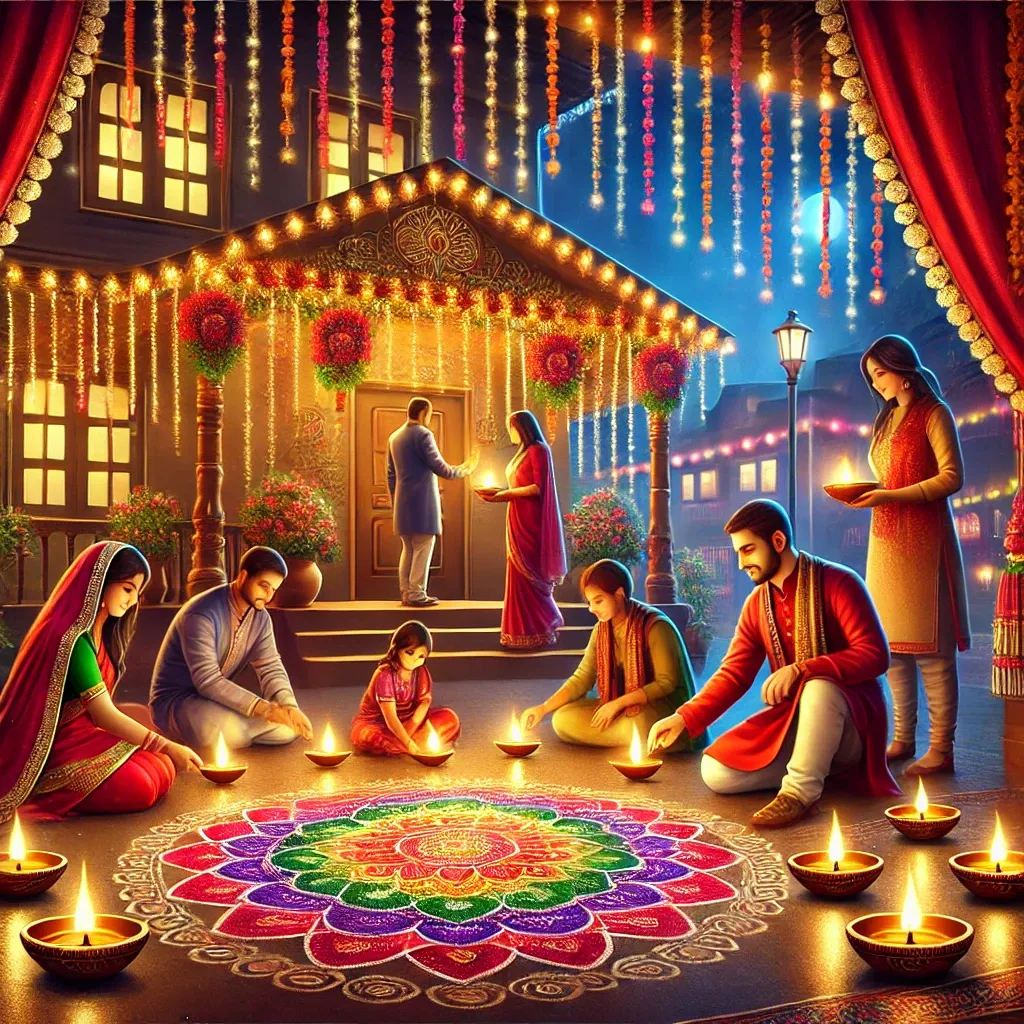Embracing the vibrant lights and traditions, Diwali in India offers more than just a festival—it’s an experience steeped in history, community, and joy. Why does Diwali resonate so powerfully across cultures, and what makes it so memorable for families worldwide? Dive into the enchanting essence of Diwali, the festival that brings people together through lights, food, and festivities.
Diwali in India: A Celebration of Unity and Light
The festival of Diwali is synonymous with joy, unity, and the victory of light over darkness. Celebrated with great enthusiasm, Diwali marks the return of Lord Rama to Ayodhya after a 14-year exile, symbolizing the triumph of good over evil. Across India, cities and towns transform with glowing lamps and colorful rangolis, while families exchange sweets and gifts, reinforcing bonds of love and friendship.Diwali is unique in its cultural depth and diversity. While Northern India celebrates Diwali in honor of Lord Rama’s return, Southern India celebrates it as the victory of Lord Krishna over the demon Narakasura, and Western India associates it with the goddess Lakshmi. This variety is a testament to Diwali’s universal appeal and adaptability across Indian states and regions. Here are key aspects that define Diwali celebrations in India:
- Decorating homes with lamps and diyas to symbolize purity and positivity.
- Creating colorful rangolis at entrances to invite prosperity and joy.
- Worshiping Lakshmi, the goddess of wealth, for blessings of abundance.
- Lighting firecrackers to celebrate victory and joy, a practice enjoyed by all ages.
- Feasting on traditional sweets and savories that bring communities and families together.
Ultimately, Diwali in India is a celebration of heritage, culture, and spiritual resilience, connecting individuals across regions and religions.
Diwali Food: A Taste of Tradition and Sweetness
No festival is complete without food, and Diwali is a feast for the senses. Every year, families come together to prepare traditional sweets and snacks that hold special meanings and are made with ingredients symbolizing prosperity. Popular sweets like laddoos, barfis, and halwas are prepared in homes and offered to guests, adding sweetness to the celebration.Preparing Diwali treats involves multiple steps, from selecting fresh ingredients to ensuring flavors are rich and authentic. The variety of foods during Diwali reflects India’s cultural diversity, with each region adding unique dishes and flavors. Some of the most common Diwali treats include:
- Laddoos: Round sweets made from flour, sugar, and ghee, often flavored with cardamom and nuts.
- Barfis: Dense, milk-based sweets made with sugar and flavors like pistachio, coconut, or rose.
- Chakli and Sev: Savory fried snacks popular in Maharashtra and Gujarat, offering a contrast to sweet dishes.
- Rasgulla and Gulab Jamun: Soft, syrupy treats soaked in sugary syrup, beloved across India.
- Puran Poli: A stuffed, sweet flatbread common in Maharashtra, symbolizing warmth and hospitality.
Each Diwali dish is made with love and shared as a blessing, honoring the spirit of giving and sharing.
Diwali Wishes: Conveying Warmth and Positivity
Diwali is a time for sharing wishes and blessings. It’s common to exchange messages filled with warmth and goodwill, highlighting the spirit of kindness and unity. Wishing friends, family, and neighbors during Diwali has become a cherished tradition, as people across the world send heartfelt messages to convey peace, love, and happiness.During Diwali, wishes are crafted to reflect themes of prosperity, health, and success. Here are ways to convey Diwali wishes that bring joy and connection:
- Sending personalized messages with themes of light, hope, and triumph.
- Sharing short poems or quotes to evoke the festival’s essence.
- Exchanging Diwali cards adorned with traditional symbols like diyas and rangolis.
- Gifting sweets and small tokens to express goodwill and cheer.
- Wishing “Shubh Deepavali” in Hindi, which translates to “auspicious Diwali.”
By sharing these thoughtful gestures, people emphasize the value of togetherness and the importance of cherishing relationships.
Conclusion
Diwali’s warmth and joy extend far beyond India’s borders, embodying the universal values of love, hope, and renewal. As the famous saying goes, “When you light a lamp for someone else, it also brightens your own path.” Diwali reminds us that even a single diya can dispel darkness, reinforcing that unity, kindness, and tradition bring light into our lives. Celebrating Diwali is not only about customs but also about the shared bonds that make this festival truly special.






